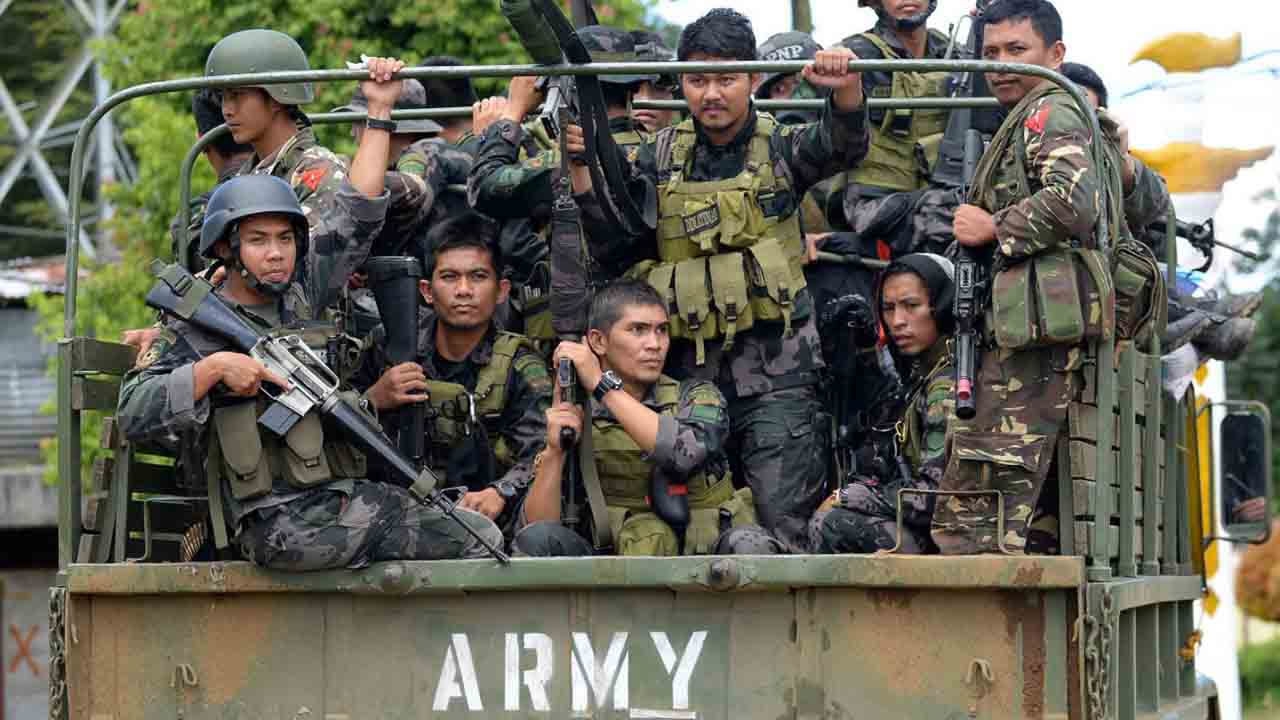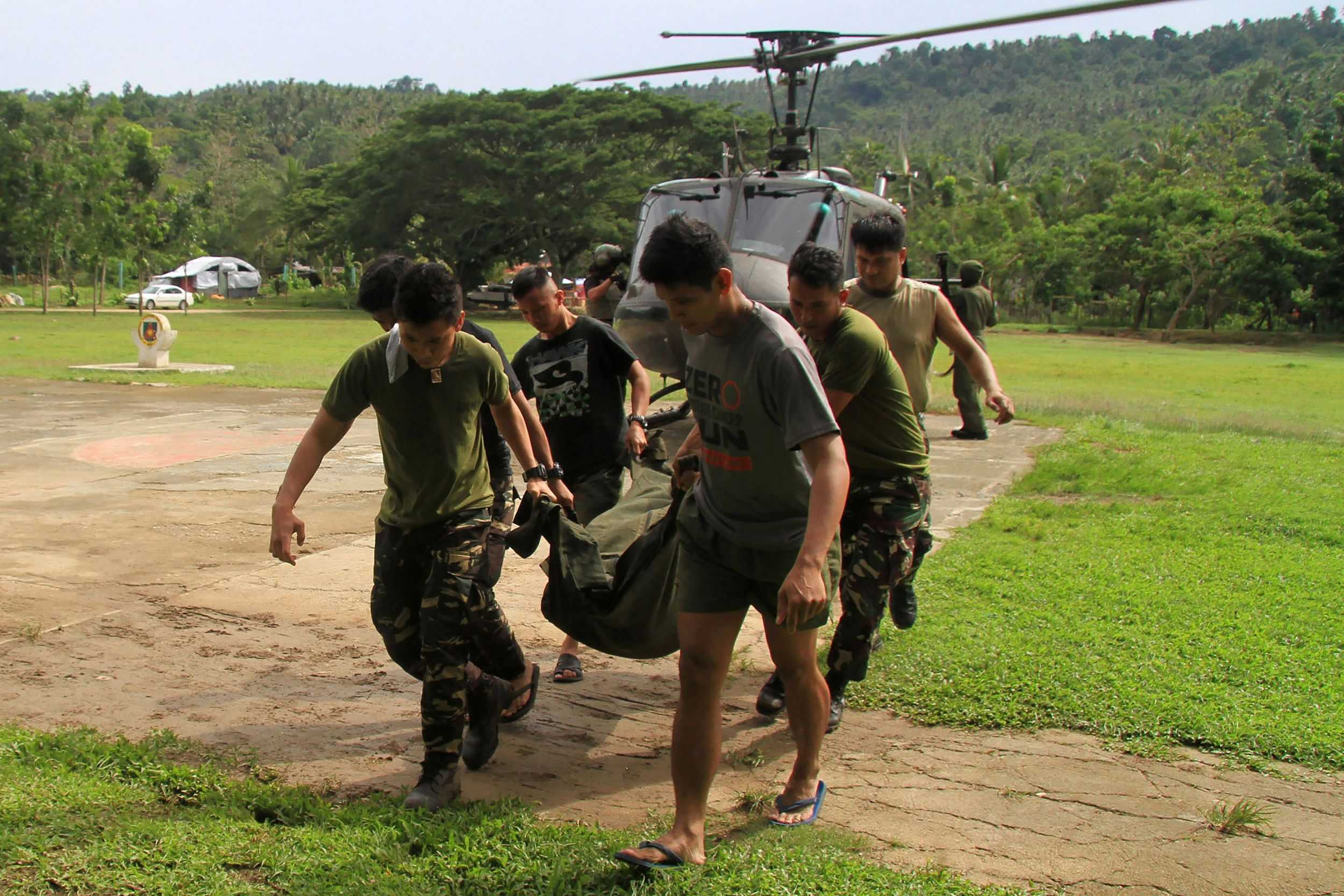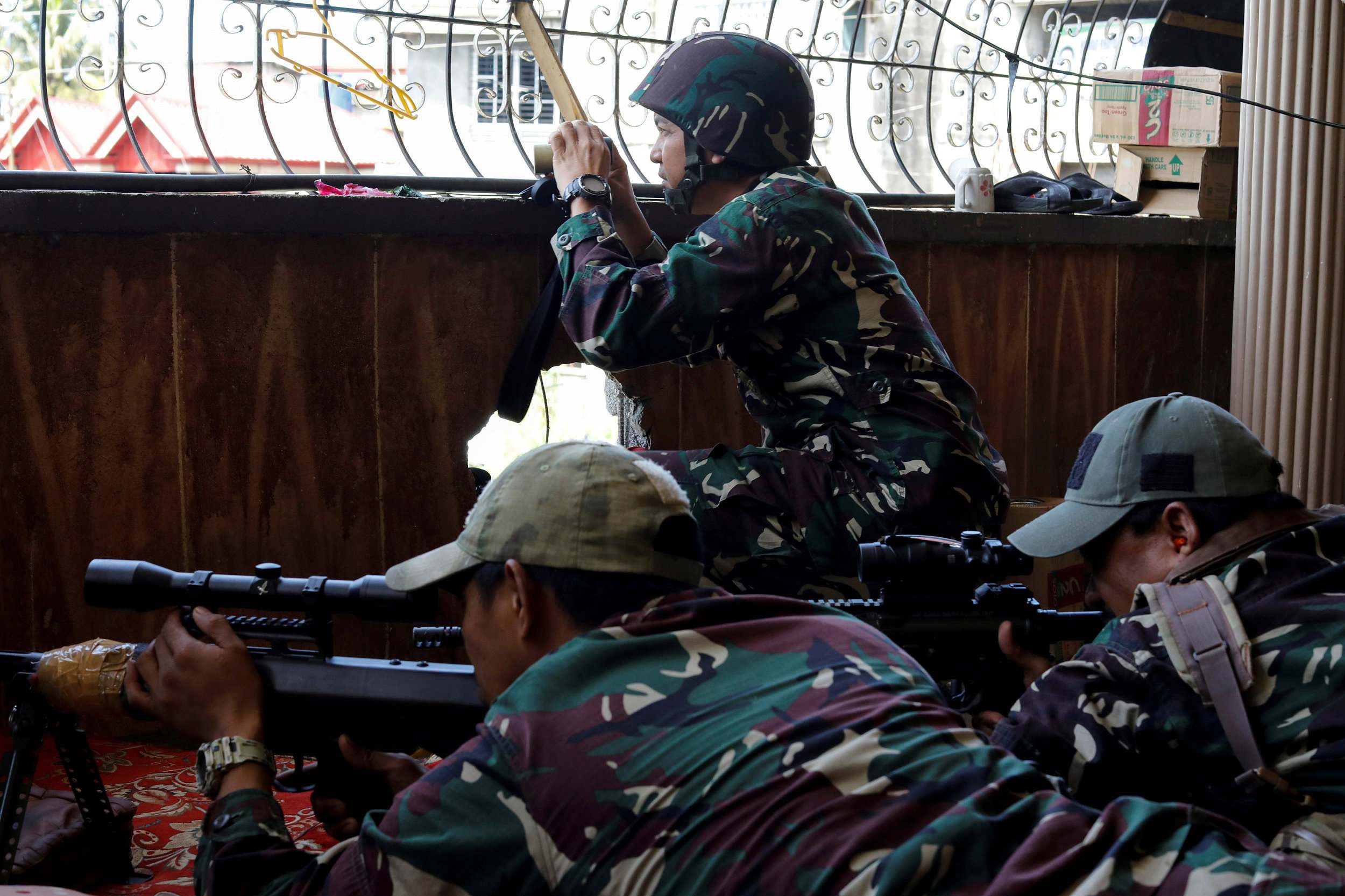
Politics
14:53, 04-Jul-2017
Supreme Court backs martial law in southern Philippines

The Philippines' Supreme Court on Tuesday endorsed President Rodrigo Duterte's enforcement of martial law across the southern third of the country, which he said was necessary to defeat ISIL group-backed militants.
Duterte imposed military rule across the insurgency-wracked region of Mindanao on May 23, hours after hundreds of gunmen waving black ISIL flags occupied parts of Marawi city and triggered deadly clashes that are yet to end.
Opposition lawmakers called for the Supreme Court to strike down Duterte's martial rule for its "utter lack of sufficient factual basis".
An overwhelming majority of the justices dismissed that petition, Supreme Court spokesman Theodore Te told reporters on Tuesday, although he did not give any reasons for their decision.
Militants continue to occupy parts of Marawi, despite a US-backed military offensive there that has claimed more than 460 lives and displaced nearly 400,000 people.

Soldiers carry a body bag containing the body of a colleague killed in action during fighting between government troops and ISIL in Marawi on the southern island of Mindanao on July 3, 2017. /VCG Photo
Soldiers carry a body bag containing the body of a colleague killed in action during fighting between government troops and ISIL in Marawi on the southern island of Mindanao on July 3, 2017. /VCG Photo
Duterte said when he declared martial law that the militants had attacked Marawi as part of a plan to establish a province for ISIL in the southern Philippines.
In their petition to the court, the opposition lawmakers warned martial law would open the door to repression and atrocities seen during the 20-year rule of the late dictator Ferdinand Marcos that ended with a "People Power" revolution in 1986.
During the Marcos dictatorship, thousands of suspected communist and Muslim insurgents, as well as his critics, were jailed, tortured or killed, according to historians.
When Duterte announced martial law, he praised Marcos's version while vowing his own would be "harsh". Under the constitution drawn up to prevent a repeat of Marcos-era abuses, the president is allowed to declare martial law only to prevent "invasion or rebellion". It is limited initially to 60 days.

Filipino soldiers lie on a mattress at their combat position in a house as government troops continue their assault against insurgents from the Maute group in Marawi city, Philippines July 1, 2017. /VCG Photo
Filipino soldiers lie on a mattress at their combat position in a house as government troops continue their assault against insurgents from the Maute group in Marawi city, Philippines July 1, 2017. /VCG Photo
If Duterte wants to extend, he must get congressional approval. As part of his martial law measures, Duterte allowed security forces to detain suspects for up to three days without prior court orders.
The government has said it has detained 66 people using these martial law powers for their links to the Marawi conflict, including the parents of brothers who are key militant leaders.
Duterte had repeatedly threatened to ignore the findings of the court if it ruled against him, vowing only to listen to the recommendations of the military.
"They are not soldiers. They do not know what is happening on the ground," Duterte said of the Supreme Court justices, as he also threatened to put martial law critics in jail.
Duterte on Monday warned martial law could continue beyond 60 days. "I urge you to remain steadfast and alert as martial law in Mindanao will remain in effect to counter the persistent threat of terrorism and insurgency," he told troops.
(Source: AFP)
2849km
Related stories:

SITEMAP
Copyright © 2018 CGTN. Beijing ICP prepared NO.16065310-3
Copyright © 2018 CGTN. Beijing ICP prepared NO.16065310-3